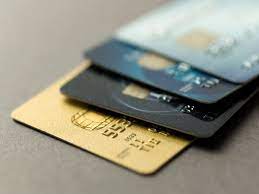
It is less likely that those borrowers who apply for "buy now, pay later" or any other point-of-sale financing offers will pay down their credit card bills compared to the general public, according to TransUnion.
According to the findings of a recent study, credit card lenders may not have lost as much business as previously thought due to the growth of "buy now, pay later" arrangements during the epidemic.
"These new forms of financing are growing the credit pie, opening up more opportunities for both consumers and lenders," said Liz Pagel, senior vice president of consumer lending at TransUnion.
The study examined the credit histories of almost 4.5 million people who applied for point-of-sale financing between October and March of this year.
TransUnion discovered that 54 percent of those who applied had decreased their credit card debt, compared to 60 percent of the overall population. Twenty percent raised their credit card debt by more than half.
Despite the fact that financial technology companies have enticed customers with new methods to borrow, large banks continue to forecast that card lending income would grow as card balances recover from being paid down during coronavirus lockdowns.
The report did not specify how much money banks lost by allowing customers to "purchase now, pay later."
According to a second TransUnion study conducted in August, one-third of respondents who used a "buy now, pay later" plan indicated they would have used a credit card if the plan had not been offered.
TransUnion stated that those applying do not appear to be increasing the risk of losses on current loans. Six months after applying, their credit card delinquency rates were just marginally higher than the overall population, at 3.2 per cent vs 2.7 per cent.
"It does not look like, at this point, consumers are over leveraging themselves," Pagel said.
(Source:www.economictimes.com)
According to the findings of a recent study, credit card lenders may not have lost as much business as previously thought due to the growth of "buy now, pay later" arrangements during the epidemic.
"These new forms of financing are growing the credit pie, opening up more opportunities for both consumers and lenders," said Liz Pagel, senior vice president of consumer lending at TransUnion.
The study examined the credit histories of almost 4.5 million people who applied for point-of-sale financing between October and March of this year.
TransUnion discovered that 54 percent of those who applied had decreased their credit card debt, compared to 60 percent of the overall population. Twenty percent raised their credit card debt by more than half.
Despite the fact that financial technology companies have enticed customers with new methods to borrow, large banks continue to forecast that card lending income would grow as card balances recover from being paid down during coronavirus lockdowns.
The report did not specify how much money banks lost by allowing customers to "purchase now, pay later."
According to a second TransUnion study conducted in August, one-third of respondents who used a "buy now, pay later" plan indicated they would have used a credit card if the plan had not been offered.
TransUnion stated that those applying do not appear to be increasing the risk of losses on current loans. Six months after applying, their credit card delinquency rates were just marginally higher than the overall population, at 3.2 per cent vs 2.7 per cent.
"It does not look like, at this point, consumers are over leveraging themselves," Pagel said.
(Source:www.economictimes.com)





